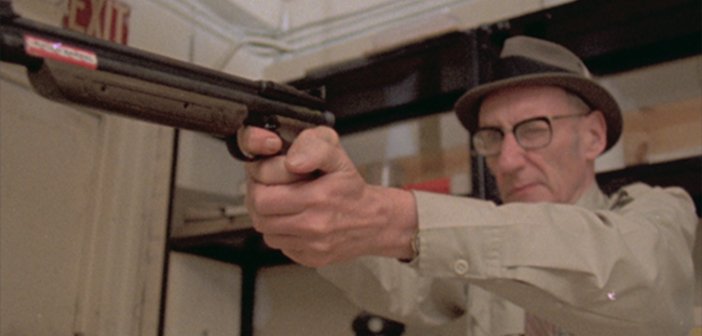Film Review | Uncle Howard Is a Meditation on the Loss of a Great Talent
Within the first ten minutes it’s made expressly evident that Aaron Brookner’s new film, Uncle Howard, is going to one that is dominated by loss. In the film’s opening scene we see Howard Brookner’s mother, the director’s grandmother, in her home showing us Howard’s old room and talking at length about his childhood ambitions. We then cut to James Garullez, William Burroughs’ close friend, sitting on the porch made iconic by many photos of the late beat writer, next to an empty chair discussing the old author. He does so while staring wistfully out onto a beautifully desolate snowy St Louis Day. Shortly afterwards Jim Jarmusch and the director visit Burroughs long-abandoned New York headquarters – the famous Bunker – and upon entering the building Jarmusch calls out to see if Burroughs is still there. The living space is so perfectly preserved that you almost expect to hear Burroughs recognisably laconic voice drone down the hall.
Ostensibly a deeply personal work, Aaron Brookner’s debut film takes his own uncle, Howard Brookner, as its subject. Howard Brookner was a filmmaker who had 2 documentaries and a feature under his belt before tragically succumbing to AIDS in the late 1980s. Brookner was part of the famous NYU film class of 1981 that included Jim Jarmusch, Spike Lee, Tom Dicallo and Sara Driver, and his death was mourned by his former classmates as the loss of a great talent. Brookner’s slight body of work creates a scenario where there’s simply not enough for his nephew to examine, but Aaron wisely sidesteps this issue by placing most of the film’s focus on the time period in which Brookner was most active – late 1970s New York – and the result is a film that acts as a fascinating snapshot of an era.

The elder Brookner made his name when he produced a film on William S. Burroughs for his thesis at NYU, which would eventually be picked up by the BBC and expanded into a full-length feature on the beat writer. Wisely, his nephew chooses to centre much of the film on Burroughs, who, as ever, acts as a fascinating centre. What’s particularly great about Uncle Howard is that Brookner uncovers a number of films from Burroughs’ bunker, largely behind the scenes footage from Howard’s documentary, where Burroughs comments in that astonishing voice on anything and everything (especially the filmmaking process). This footage is also wonderful for the cameos by the young filmmakers attending NYU with Brookner, the most enjoyable of which is probably Jim Jarmusch operating a boom mic. This footage perfectly captures an age where, as Jarmusch notes, it was possible to be a musician without knowing a thing about music, a filmmaker without knowing the first thing about a camera and a poet without knowing how to spell. This period is reasonably well-documented of course, but for anybody interested in that time then this film will provide plenty of entertainment. The film takes a marginal dip when it moves beyond the coverage of the Burroughs documentary, but Aaron Brookner wisely keeps the runtime quite trim so you hardly notice.
Uncle Howard is an achievement as a documentary because Aaron Brookner succeeds in crafting something that feels deeply personal without ever using that as a crutch for is ultimately relatively thin material. The focus on the recently unearthed footage is more than enough to keep the film running and Brookner has a good sense of what viewers will be more interested in.
Uncle Howard is in cinemas now. View the trailer below.
[arve url=”https://www.youtube.com/watch?v=s9Z_gIbIP2I” maxwidth=”750"]

